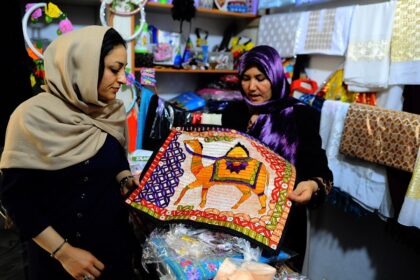RASC News Agency: Local sources in Faryab province have confirmed that Ghulam Sakhi Naweed, a former member of the Faryab Provincial Council and a prominent figure among the province’s Tajik community, has been arbitrarily detained by Taliban forces. According to these sources, Naweed was apprehended yesterday under the direct orders of the Taliban-appointed governor of Ghurziwan district and subsequently transferred to an undisclosed location.
Family members have expressed profound concern, reporting complete lack of information regarding his whereabouts, well-being, or the justification for his detention. The Taliban, as is often the case, have remained silent, offering no official explanation for the arrest.
Naveed’s detention is emblematic of a broader campaign of political persecution that has intensified since the Taliban’s return to power in August 2021. Over the past four years, multiple reports have documented the arrest, torture, and extrajudicial execution of former government officials, members of national and provincial councils, ex-military officers, and commanders associated with the anti-Taliban resistance. In numerous cases, detainees particularly former security personnel have perished under prolonged interrogation or in clandestine detention facilities, with their bodies later returned to families bearing signs of severe abuse.
Beyond outright violence, observers highlight the emergence of a systemic network of extortion and financial exploitation within the Taliban’s provincial governance. Local commanders and officials routinely detain former government representatives, council members, and influential community leaders under pretextual charges, subsequently releasing them only in exchange for substantial sums of money. Analysts describe this as a structuralized form of corruption, in which arbitrary detentions and intimidation function as a de facto source of revenue for Taliban authorities.
Political analysts argue that Naveed’s detention must be interpreted within this broader framework. Far from being a legal or judicial measure, his arrest likely serves political coercion and financial extortion, targeting influential figures who could challenge or criticize Taliban rule. Despite repeated assertions of a so-called “general amnesty,” the continuing pattern of arbitrary arrests, enforced disappearances, and selective punishment underscores the hollowness of such promises. Northern Afghanistan, in particular, remains mired in fear, mistrust, and repression, with local populations subjected to constant intimidation by the regime.
Earlier this year, the United Nations Assistance Mission in Afghanistan (UNAMA) submitted a report to the UN Security Council detailing the systematic killings, torture, arbitrary detentions, and imprisonment of hundreds of former government officials by the Taliban. The report concluded that the group’s proclaimed amnesty is entirely unenforceable in practice, and that the Taliban continue to govern through terror, coercion, and the obliteration of institutional checks and balances.
Naveed’s detention highlights a deliberate Taliban strategy of consolidating power by erasing the political and administrative legacy of the previous government. It exemplifies how the regime employs a combination of fear, financial exploitation, and violence to suppress dissent and maintain authoritarian control, demonstrating that the Taliban’s rule is defined not by governance, but by coercion and systematic repression.
This arrest sends a chilling message to Afghanistan’s civil society, former officials, and ethnic minorities: under Taliban rule, influence, prominence, or political dissent are treated as threats, and those who once held positions of authority face targeted intimidation, abduction, and the looming possibility of death. For the international community, incidents like Naveed’s detention underscore the urgent need to hold the Taliban accountable for ongoing human rights violations and to prioritize mechanisms that protect Afghanistani civilians from the regime’s unabated authoritarianism.






